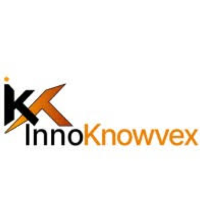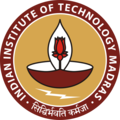This article outlines the core responsibilities and requirements for managing effective campus recruitment programs. It covers strategy development, institution targeting, campus engagement initiatives, end-to-end hiring processes, employer branding, measurement and reporting, and the tools and skills needed to execute large-scale campus drives while maintaining candidate pipelines, dashboards and stakeholder relationships for measurable impact for organizations.
Strategic Campus Recruitment Responsibilities
Effective campus recruitment begins with a clear annual plan and disciplined execution. Key responsibilities include:
- Develop and execute the annual campus recruitment strategy — define objectives, timelines and success metrics to guide all campus activity.
- Identify target institutions and programs — select academic partners and relevant programs to build a steady talent pipeline.
- Plan and manage campus hiring calendar and budgets — align events, drives and spend to the annual strategy and hiring needs.
- Build and maintain partnerships with placement officers, faculty and student organisations — sustain relationships that support outreach, events and candidate sourcing.
- Represent company at career fairs and campus events — act as the public face to attract talent and strengthen employer presence.
- Coordinate campus engagement initiatives — organize workshops, hackathons, case competitions and webinars to engage students and evaluate skills.
- Manage end-to-end campus hiring — conduct pre-placement talks, assessments, interviews and offer rollouts to convert candidates efficiently.
- Partner with hiring managers on job profiles and selection criteria — ensure alignment on roles, competencies and evaluation standards.
- Ensure timely communication with candidates and campus contacts — maintain transparent, consistent updates throughout the recruitment process.
- Promote employer brand via campus marketing and digital campaigns — raise visibility and appeal to target student audiences.
- Support creation of campus collateral — develop presentations, videos, brochures and social content to communicate opportunities and culture.
- Track and measure impact of campus activities — collect outcomes to evaluate effectiveness and inform future planning.
- Maintain candidate pipelines, dashboards and reports — keep organized records and real-time views of talent flow and hiring progress.
- Analyse trends to improve recruitment cycles — use measured insights to refine timing, targeting and engagement tactics.
Requirements, Tools and Talent Engagement Skills
Delivering on the responsibilities above requires a mix of formal qualifications, practical experience and interpersonal strengths:
- Educational background — Bachelor’s degree in HR, Business Administration or related field; Master’s preferred.
- Experience — proven ability to manage large-scale campus drives is preferred to handle complexity and volume.
- Interpersonal and communication skills — strong ability to engage students, campus stakeholders and hiring managers effectively.
- Organisation and project management — excellent planning and stakeholder management skills to coordinate calendars, budgets and events.
- Technical tools — knowledge of ATS and recruitment analytics tools to maintain pipelines, dashboards and reports.
- Passion for talent engagement — genuine enthusiasm for relationship building and creating meaningful campus experiences.
In summary, successful campus recruitment combines a strategic annual plan, targeted institution engagement, coordinated events and precise end-to-end hiring processes, supported by clear reporting and trend analysis. The role demands relevant academic credentials, experience with large-scale drives, strong interpersonal and project management skills, familiarity with ATS and analytics tools, and a passion for talent engagement to sustain pipelines and employer brand impact.










